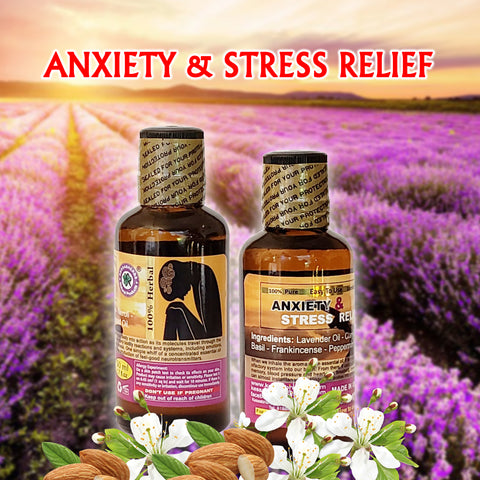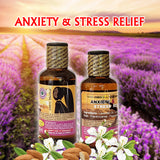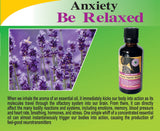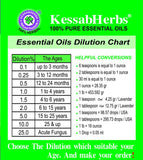


How to Use:
1-Apply several drops on your palm, massage behind the ears even the neck until the skin absorbs the oils.
2- Inhaling an aroma deeply 3-6 times in each nostril before bedtime.
For more information visit any video on Google to learn how to do self-massage for neck and behind the ears.
Michael J. Breus, Ph.D., DABSM
The Sleep Doctor™
Our sense of smell is directly wired to the brain’s centers of memory and emotion. Cells inside the nose detect smells in our environment, and send information to the brain, via the olfactory nerve. (We also have a cluster of cells the top of the throat that detects scents from the food we consume and pass that information along the same olfactory channel to the brain.) The information about smell does immediately to the limbic system of the brain, which includes regions like the amygdala that control emotional reactions and memory.
This makes smell unique among our senses. Information we take in from our other senses travels first to another region of the brain, the thalamus, which acts as a relay station, passing along sensory data to the other parts of the brain that produce our sensory perceptions. Only smell moves directly to the brain’s emotion and memory center. That’s why those memories you associate with the scent of garden roses, or banana bread baking in the oven, come on so quickly and so strongly
The ancient practice of aromatherapy, still useful today
The use of essential oils for medicinal purposes has an ancient history, going back to early Egyptian, Chinese, and Roman societies. Ever hear of the Hippocratic Oath? That’s the ethical pledge taken by physicians for centuries (now, often taken by students upon graduation from medical school). It’s named for Greek physician, Hippocrates, who studied the effects of essential oils and was a proponent of their healing, health-promoting properties.
Aromatherapy is a modern term for this ancient practice. And for years, scientists have been conducting studies into the sleep-promoting, stress-relieving, pain-reducing and mood-regulating benefits of essential oils.
The scientific benefits of essential oils for sleep, mood, and health
I’m a big proponent of using natural, mind-body therapies to create better sleep, both by helping sleep directly and by relieving stress, anxiety, low mood, and physical discomfort. The practice of aromatherapy can do all these things. Essential oils have been used for centuries to promote relaxation and mental and physical wellness. Today, these same oils are increasingly being studied by scientists in search of a more rigorous, specific understanding of their benefits to sleep and health.
For sleep: A body of research shows that essential oils can provide relief for disrupted sleep and improve sleep quality in adults. A 2017 study compared the effects of aromatherapy and acupressure massage on sleep quality and overall quality of life in women. Researchers found that a blend of sleep-promoting essential oils worked more effectively to improve both sleep quality and quality of life than acupressure. The blended oil was also more effective at improving sleep than a single essential oil, lavender.
For stress and anxiety: Stress and anxiousness are frequent obstacles to sound, restful sleep. People who experience stress and anxiety symptoms often have trouble falling asleep and sleep restlessly throughout the night, leaving them tired and fatigued the next day. There’s a body of research indicating that aromatherapy using essential oils can help to relieve stress and anxiety symptoms, which may help improve sleep indirectly.
For depression: Depression and sleep problems often go hand in hand. A number of studies have examined the effects of aromatherapy using essential oils in people with depression and depressive symptoms, both with and without anxiety. Aromatherapy can help improve depressive symptoms, according to the results of several studies. A study found aromatherapy improved both depression and anxiety in a group of post-partum women. And a 2016 analysis found aromatherapy effective in reducing stress and depression—as well as symptoms of menopause—in middle-aged women.
How to use essential oils for sleep and relaxation
Many of my patients are interested in using essential oils for better sleep, but they’re not sure how. Here are some simple guidelines to get you started:
Add oil to your bath. This is a great way to get the relaxation and sleep benefits of aromatherapy while also taking advantage of the sleep-promoting effects of a warm soak. Put several drops of your favorite oil into your bathwater, and schedule your soaking time for 90 minutes to an hour before your bedtime.
Use a diffuser. Diffusers will disperse oils into the air in your room. Typically, you add water and oil, in amounts set by the manufacturer. Follow their instructions.
Make your own mist. You can combine essential oil and water in a spray bottle or atomizer and spray around your room, or give a light mist to your bed linens. I recommend spraying the underside of your pillow to avoid any skin irritation. For every ½ cup of water, use 4-5 drops of essential oil, or less if the scent is too strong.
Apply to the body directly. Some people find it soothing to apply essential oils to pressure points, like the wrists or behind the ears, or use oils to give themselves a light self-massage. (Massage for–or from–your bed partners work great, too!) Essential oils in the undiluted form are highly concentrated and intense and can irritate your skin. DO NOT APPLY undiluted essential oil to your skin. If you’re planning to use essential oils topically on your body, be sure you’re buying an already diluted oil—a mixture of the fragrant essential oil of your choice and a carrier oil (often a vegetable oil).
As you’re using essential oils, pay attention to how you feel. The scent is a highly individual experience. Each of us reacts to smells differently. The right scents for your relaxation and sleep are the ones that make you feel relaxed and sleepy! You may need to experiment with different oils before you find the right one for your nightly routine. If a scent makes you feel alert and awake, it is NOT the right one for sleep. But you can use it in the morning to help get you rolling into your day.
Michael J. Breus, Ph.D., DABSM
Refer to the dilution chart for dosage.
Free shipping within the U.S.




